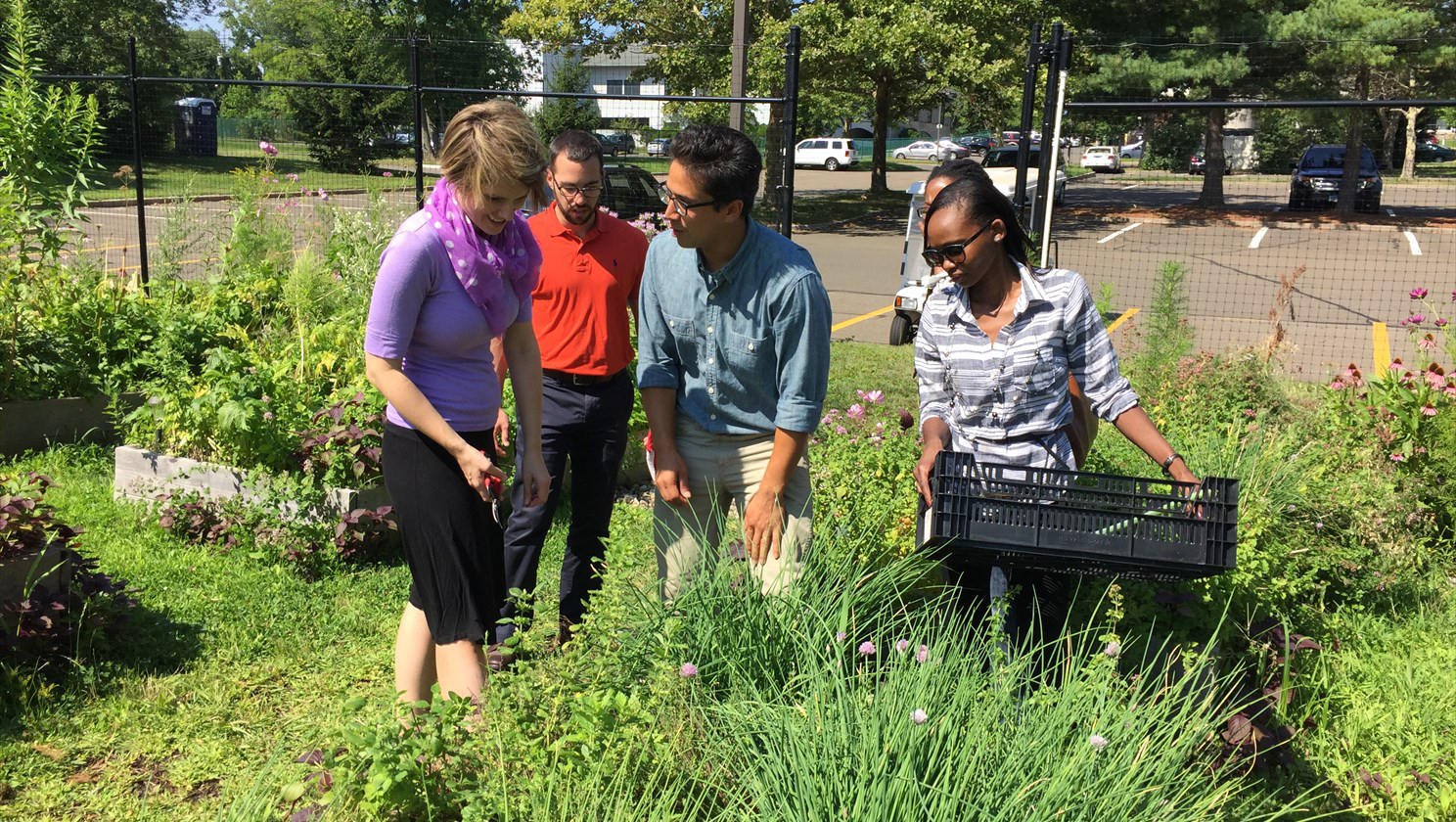
Courtesy of Jon Atherton
The Yale School of Medicine offered a two-week elective class this past fall for 10 medical residents which focused on healthy eating and cooking that integrated hands-on farm experience.
Students in the course studied in the Landscape Lab’s barn, harvested and cooked produce and took field trips to educational farms, according to a YaleNews press release. Sanjeet Baidwan, a clinical instructor at the School of Medicine and co-leader of the course, said students also discussed scientific journal articles, met with local chefs and visited local community gardens to learn about different approaches to healthy eating.
“One of the things we required at the end [of the course] was to have a deliverable,” Baidwan said. “We wanted something that came out of their two weeks that they could implement either in the clinic or to teach medical students about or write an op-ed.”
The Yale Landscape Lab, which allows the Yale community access to the 136-acre West Campus, provided the facilities for the course.
Students’ deliverables included a checklist for electronic health records, a recipe book for low-income individuals, and op-eds about healthy eating, Baidwan said.
According to Landscape Lab Director Justin Freiberg FES ’10, the Landscape Lab offers resources for different types of opportunities and projects to take root, including Cultivate Health. Freiberg added that Cultivate Health, which includes this course at the School of Medicine as well as programming at the School of Nursing, explores new ways of teaching health science through urban farms and wider natural environments.
“What [the Landscape Lab tries] to do is provide a platform for the Yale community, for students and faculty, to explore problems and build solutions to some of the big questions regarding the sustainability of our world,” Freiberg said.
Baidwan said the Medical School is one of only a small number of institutions with programming on culinary medicine, joining Tulane, Northwestern, Stanford and Harvard.
The course began as a daylong required workshop for all residents during the 2015–16 academic year.
“The idea for the course started when I was in residency,” Baidwan said. “I was doing the primary medicine track for residency, and the core of our patient population is people who suffer from lifestyle diseases across the United States, including obesity, hypertension and diabetes. It started with my peaked interest in that, knowing that these lifestyle diseases are food and exercise-based, so they are hard to prevent. I wanted to learn how to implement and act on that.”
She decided to focus on implementing “evidence-based lifestyle changes,” methods to promote lifestyle changes backed by peer-reviewed scientific research. Baidwan noted that a key issue with diet and lifestyle is that people are flooded with information from different sources. She pointed out that, as opposed to fitness magazines or food bloggers, medicine will not implement care or changes until those changes have been rigorously scrutinized.
Committed to creating the class, Baidwan reached out the Yale Landscape Lab in order to utilize their resources.
“It was an excellent meeting between two like-minded individuals who are focused on the same thing but come from very different academic backgrounds, so it made for an exciting development,” Freiberg said.
Freiberg and Baidwan collaborated to develop the culinary medicine elective, with the Landscape Lab’s budget providing funding for some activities. Prior to his position at the Landscape Lab, Freiberg had worked in on-farm education for 10 years.
Student reception to the elective has been positive.
“I think that our current medical education system does us a disservice by not teaching us nutrition,” said Jasleen Salwan, a primary care medicine resident at Yale New Haven Hospital who took the course last fall. “We learn how to medicate the consequences of a poor diet, but we are very inadequately taught about how to promote health through proper nutrition. Sanjeet’s elective served to fill that gap and open up a conversation about nutrition that needed to be had.”
Moving forward, Baidwan says that she and Freiberg look forward to collaborating with other schools and departments who have reached out. Additionally, they are in talks with the medical school about creating a class for medical students.







